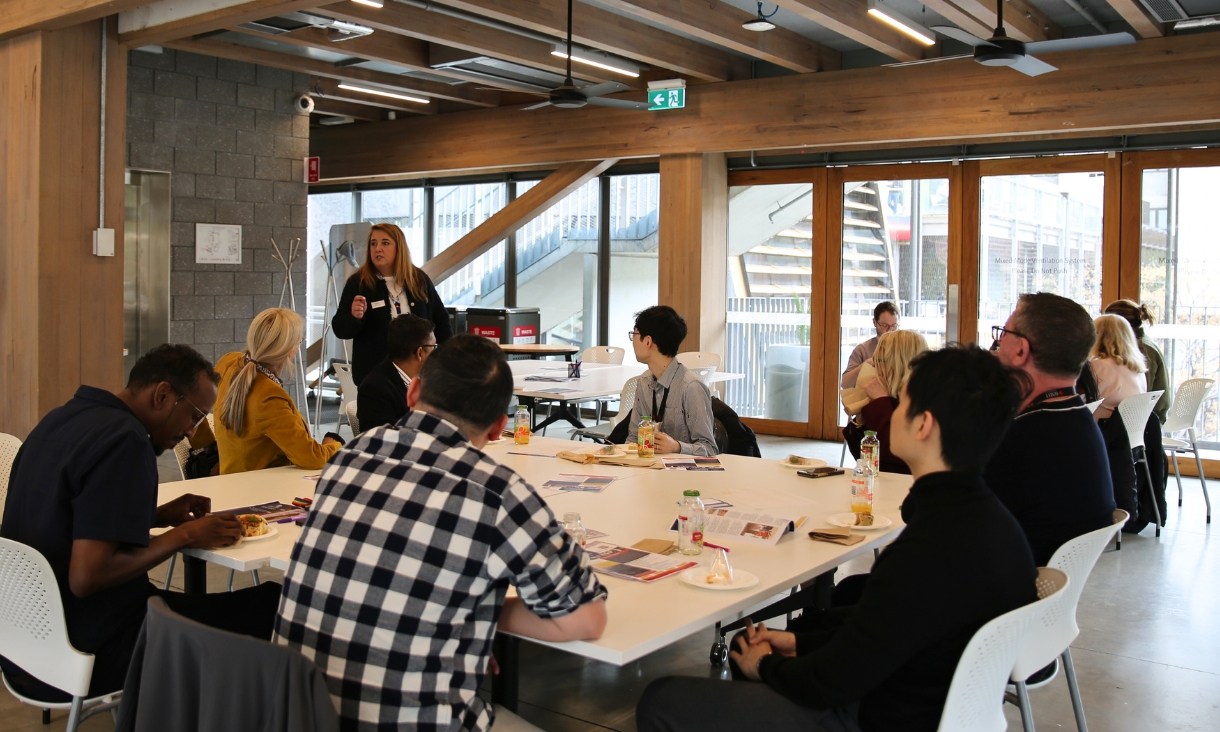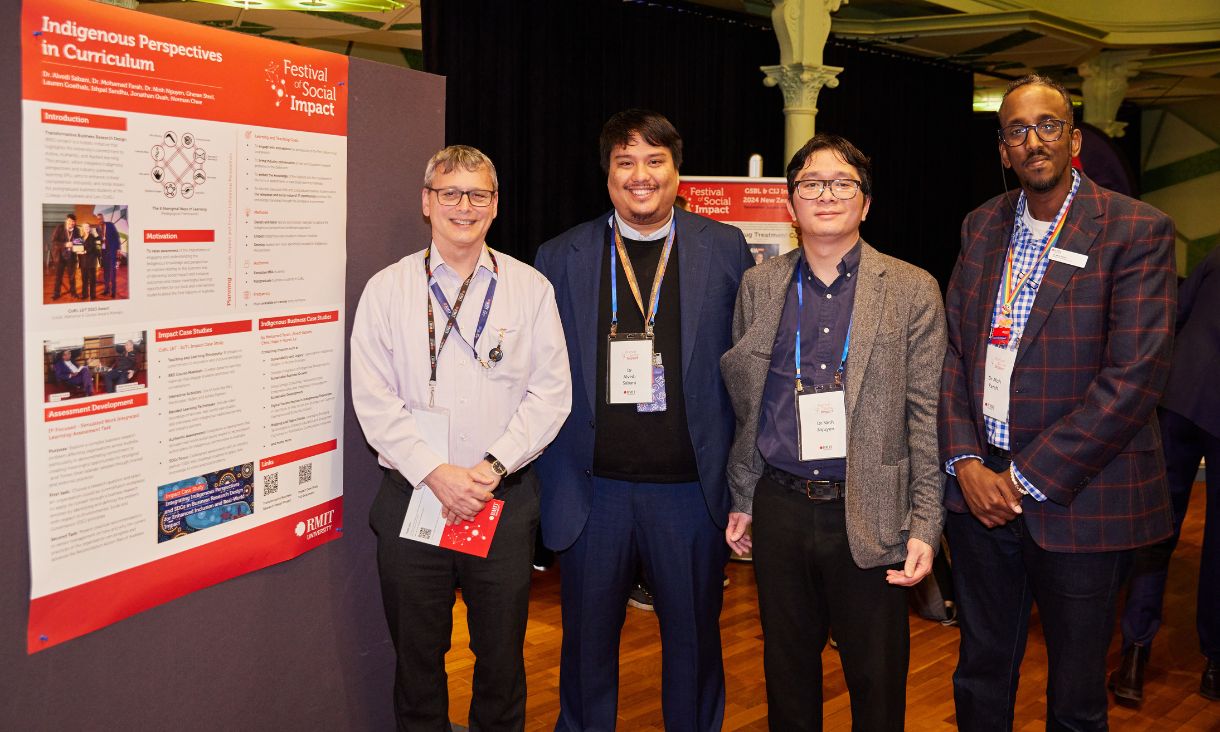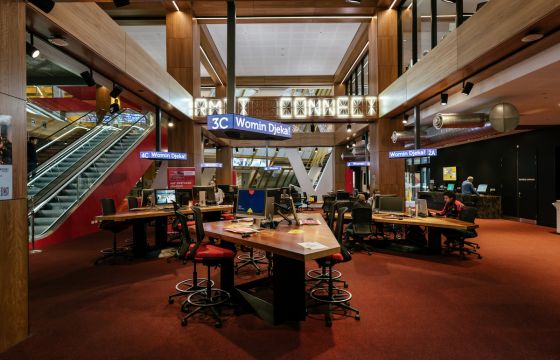How the peer mentoring program works
RMIT University’s Library offers a range of free study support services and resources to provide students with the necessary support throughout their learning journey. The peer mentoring program is just one of the many study and assessment support services available.
The service is quite a unique offering: it is led by current students who mentor their fellow students in their coursework and help them to build study skills.
The aim of the program was two-fold, firstly, create a safe space for students to ask questions about what they were learning and get practical guidance from someone with more experience. Secondly, provide an opportunity for students to become mentors and develop their communications skills while consolidating their knowledge of course content.
Getting advice from past students was amazingly helpful. They taught me how to break down the rubric and understand the assessment brief – Tanya Khan, first year Bachelor of Nursing student
The scope of support peer mentors can provide is refined to breaking down tasks and identifying study goals, providing general study skills tips, sharing where to find useful academic resources, and explaining how to navigate assessment briefs and rubrics.
Peer mentors can also provide encouragement and support, help students connect with other study support services RMIT offers and explore campus study areas.
Mentors don't proofread or give assignment feedback. This is because peer mentors are students, not tutors – while they have experience and knowledge of the courses they mentor students in, they are not academic experts. For this type of support RMIT has an Academic Skills Advisors service that provides expert help on assignments.
Support services such as these are critical in providing help to students in need of academic support. Research has found academic aptitude, or lack thereof, is one of the main drivers of engaging in academic misconduct. When students find themselves in this vulnerable position, they face a choice: find support to help them with their work or find someone to do their work.
Mel Kidman, Senior Coordinator, Library Concierge and Peer Mentoring explains, "to help boost academic confidence in students (mentees) the peer mentors don’t tell students how to do the work that is required, they help students understand what is being asked of them and share how they succeeded. This may include working together to understand the rubric, sharing how they broke down tasks to avoid feeling overwhelmed and discussing content learned in class that can be applied in assessments. Students can take many of these tips and apply them to other courses."
How students become peer mentors
The peer mentoring team recruit's students who have previously studied in the courses offered and achieved an excellent academic performance of 75% and above. This niche offering allows students to connect with peers who have recent experience (within the last 12 months) with and understanding of their course content. Currently, 192 courses across RMIT University have adopted a thriving peer mentoring program.
‘Our peer mentors' recent first-hand knowledge of what’s expected provides mentees with a good understanding of workload, what the academic or teacher is like, how to study for and manage their time with the course, what steps they took to start their assignments, and they often share the mistakes they made so others can avoid them’, Mel explains.
The service is also available to Higher Degree by Research (HDR) students, with mentors who have completed at least one year of research.
Before becoming a mentor, students must attend a compulsory training session outlining strict rules on providing help and avoiding collusion. This is a crucial first step into the program to help maintain a culture of integrity at RMIT.
“There is a fine line between collaboration and collusion. We strive to clearly define this line and the scope of collusion to help our mentors avoid accidental collusion to uphold our value of integrity at RMIT.” said Mel.
What students get out of engaging with the program
Being a mentor provides students with sought after skills in time management, leadership and interpersonal skills.
One mentor in the program, Kyle Janda, said “because of being a mentor, I have greatly improved on my communication skills. I now have the ability to translate complex topics in layman's terms and adjust my communication to best suit the needs of my mentee. Interacting with a variety of people, from various backgrounds has also helped me improve on my social skills.”
Educators play a key role in connecting students – both as potential mentors and mentees – with the service.
Associate Professor Mali Abdollahian, Program Manager for Master of Analytics and Master of Statistics and Operations Research, widely advertises the peer mentoring program in her programs. As Mali’s post graduate courses have students from different undergraduate backgrounds, the program offers extra help with core subjects for students new to analytics and statistics.
Mali said the program has provided extra individual support for students enrolled in large classes and has provided mentors with leadership experience.
“The program was so successful (based on Student Staff Consultative Committee feedback) that we extended it for all of our core course including our more advance second-year course.” said Mali.







